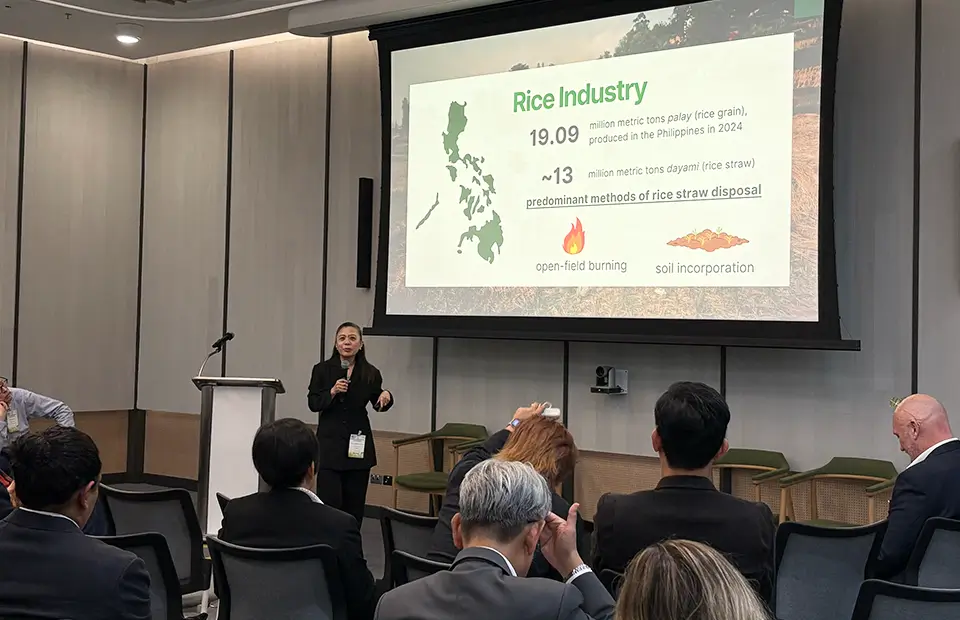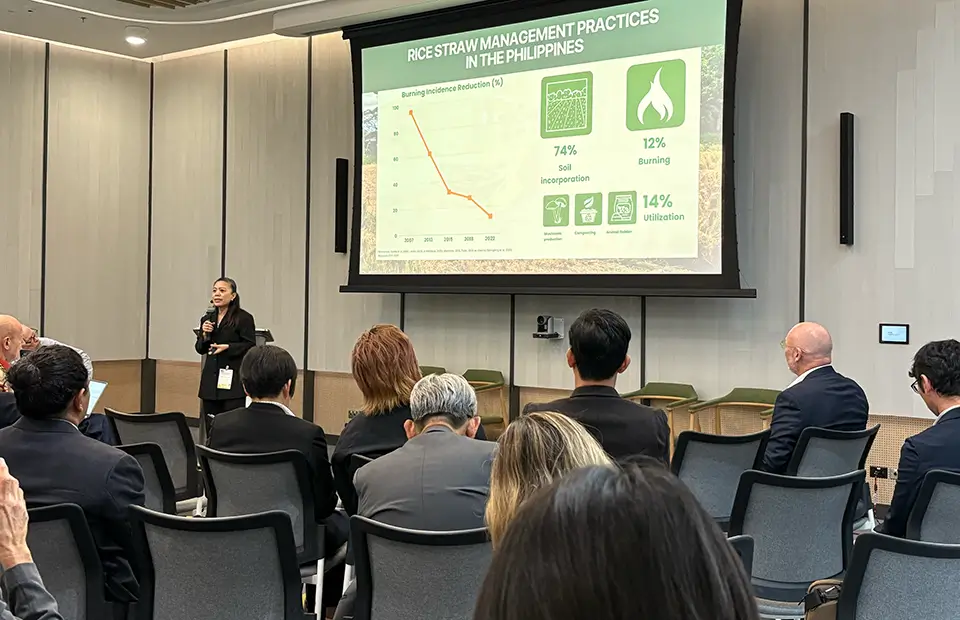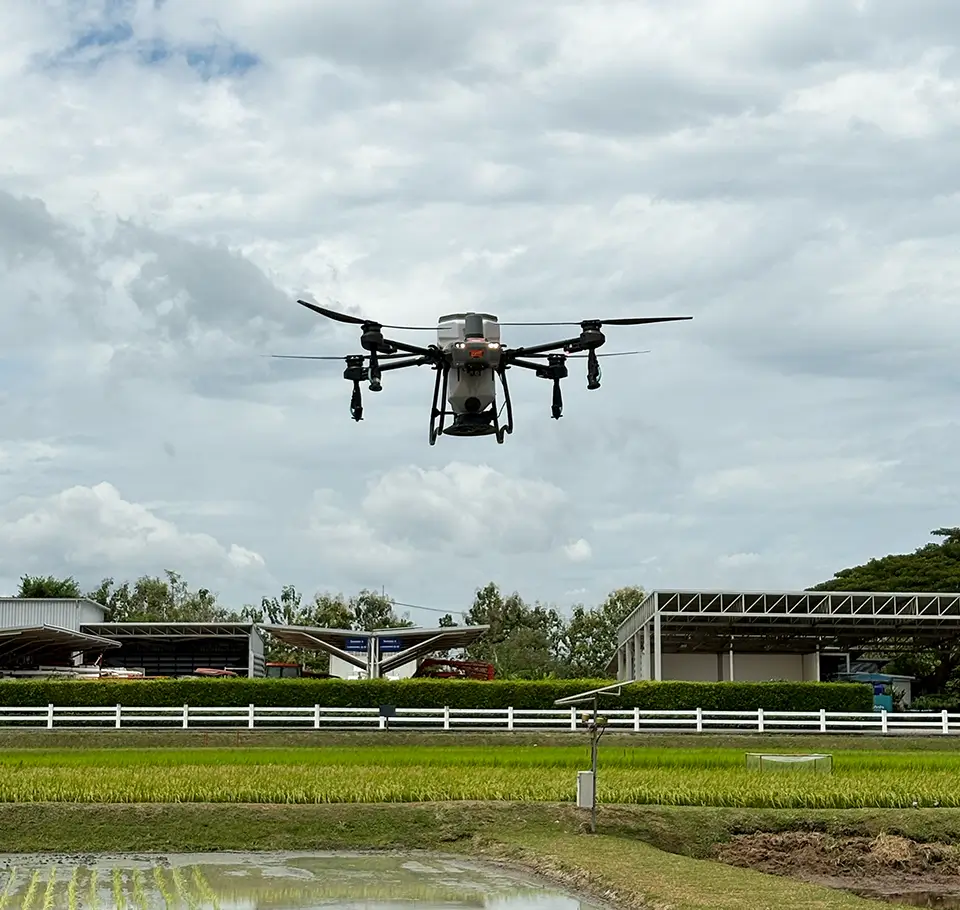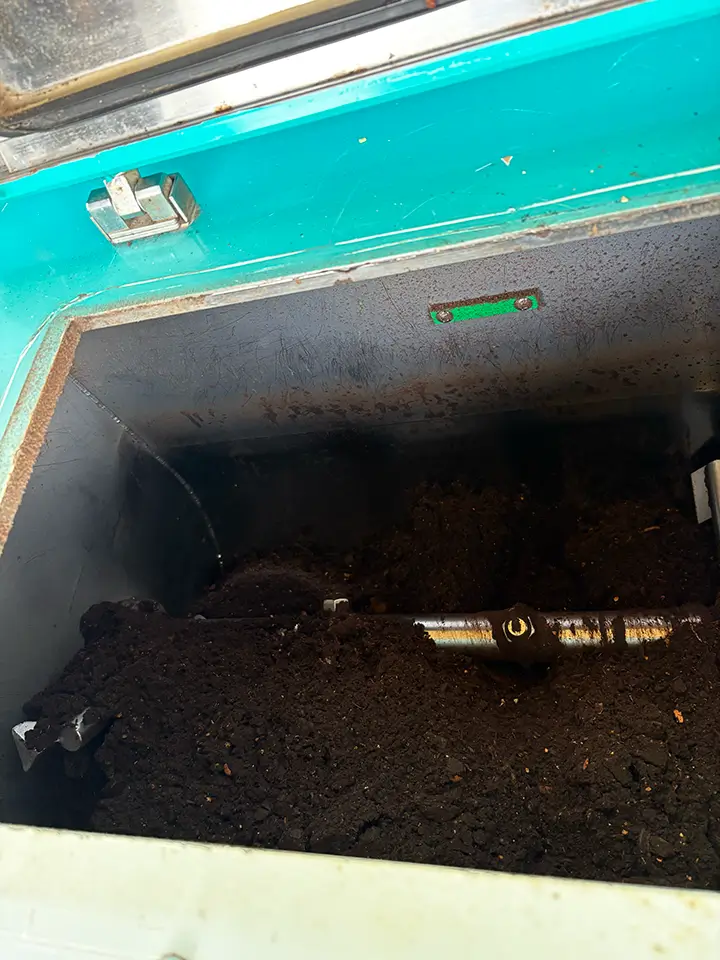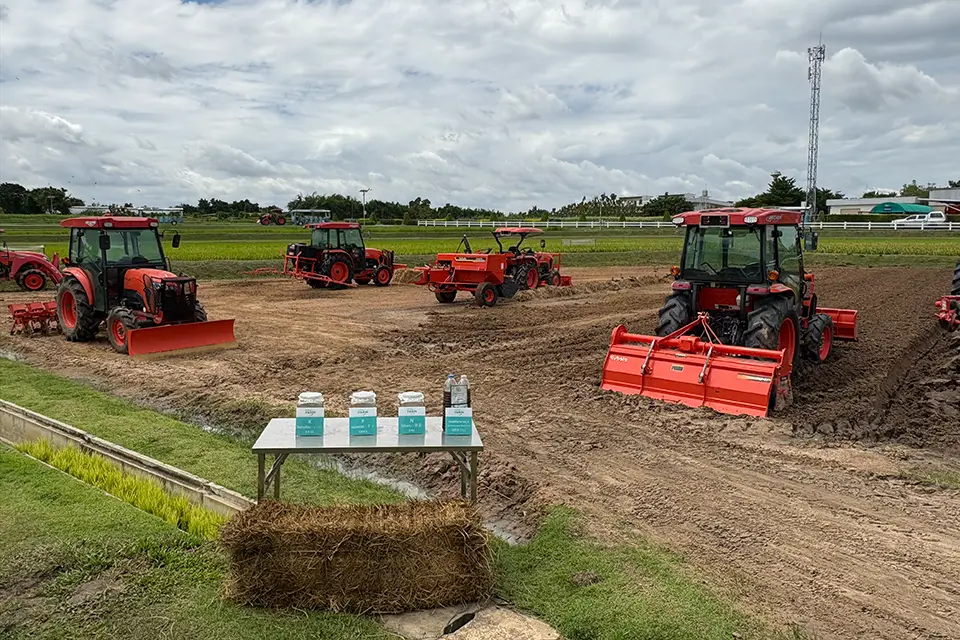BANGKOK, Thailand—The Southeast Asian Regional Center for Graduate Study and Research in Agriculture (SEARCA) presented the Dayami Hub concept of its Rice Straw Biogas Hub project in the recently held Agrifuture Conference and Exhibition 2025 in Bangkok on 23–24 September 2025.
Organized by the German Agricultural Society (DLG Asia Pacific), the conference convened over 300 participants from government agencies, private enterprises, innovation entities, and sustainability groups representing more than 20 countries across Southeast Asia and beyond. With the theme "Clean Practices and Green Innovations for a Sustainable Agri-Food System," the event highlighted efforts to advance sustainable and eco-friendly approaches in the agri-food industry.
The conference was co-located with the Friends of Thai Agriculture (FTA) 2nd Agricultural Burning Conference themed "Putting Out the Fire: Advancing Solutions for Sustainable Post-Harvest Biomass Utilization."
In the breakout session on residue-to-value technologies moderated by the Food and Agriculture Organization of the United Nations (FAO), Ms. Lichelle Dara Carlos, Program Specialist at SEARCA's Emerging Innovation for Growth Department, introduced the Dayami Hub concept as a national strategy to curb rice straw burning, reduce greenhouse emissions, and diversify farmer income. Carlos noted that the Philippines generates at least 13 million tons of dayami or rice straw annually, a biomass resource that can be converted into soil amendments, food or feed inputs, and bioenergy. The session also included presentations by representatives from the Thailand Department of Agricultural Extension, Thailand Development Research Institute, TOWING Co. Ltd. (Japan), QUBE Renewables Ltd., SEARCA, and Warm Heart Foundation.
Circular, community-based model
The Dayami Hub concept is framed as an integrated community-based facility that applies a circular economy approach to transform rice straw into socio-economic opportunities while mitigating greenhouse gas (GHG) emissions, such as methane. It targets an increase in rice straw utilization from 14% to 70% by shifting away from burning rice straw or the leaving straw to decompose in flooded fields, which are practices linked to higher methane emissions, health risks, and soil nutrient loss. Such a shift will also realize the economic potential lost due to burning rice straw.
The key components of the hub include rice straw collection machinery and services, processing facilities to produce diverse products such as compost and biochar for soil regeneration, substrate for mushroom growing, fodder for animal feed, and bioenergy ( e.g., biogas as household fuel or electricity).
Residues from processing rice straw, such as spent straw from mushroom production or digestate from biogas production, are returned to the field as compost and fertilizer.
The Dayami Hub was conceptualized through the Rice Straw Biogas Hub (RSBH), a UK Innovate-funded three-year project to convert rice straw into valuable inputs for bioenergy and climate mitigation.
Regional perspectives and technologies
In the same session, Thailand's Department of Agricultural Extension emphasized that non-burning agriculture is essential to mitigating global warming and reducing particulate pollution and encouraged various agricultural waste utilization pathways and switching to perennial and alternative crops. The Thailand Development Research Institute presented potential policy packages to cut rice stubble burning, such as subsidies, tillage services, social pressure, and rewards for fire-free villages.
The Warm Heart Foundation in Thailand shared its work training smallholder farmers to create and use biochar, a charcoal-like substance made from agricultural waste. TOWING, an agri-venture company, demonstrated Soratan, a microbial biochar-based product aimed at improving soil quality. UK-based QUBE Renewables presented its biodigester technology that converts tons of rice straw into biogas. During discussions, rapid on-field microbial composting was also suggested as a strategy for mountainous areas inaccessible to tractors for agricultural residue collection.
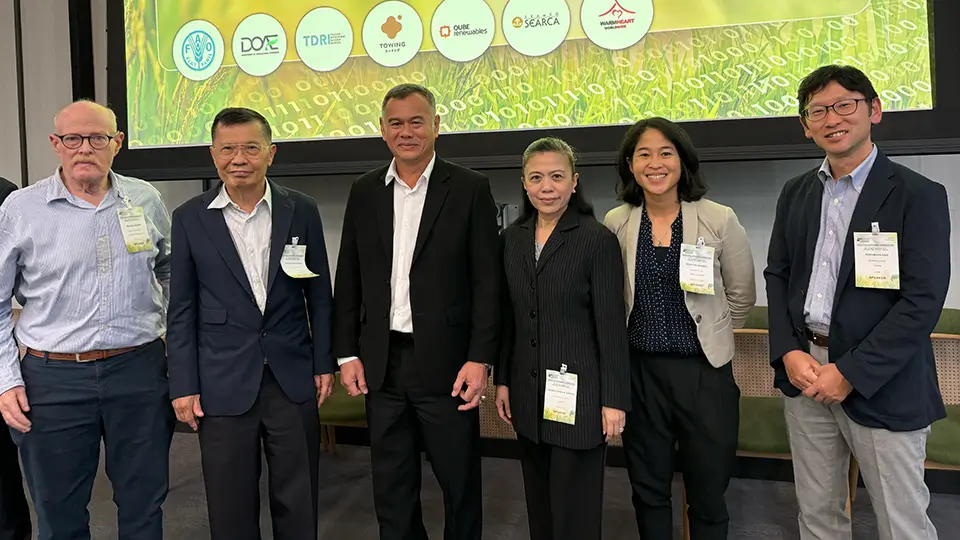 Discussants during the breakout session on sustainable agricultural practices and technologies for treating biomass residues.
Discussants during the breakout session on sustainable agricultural practices and technologies for treating biomass residues.
FAO Chief Technical Adviser Brett Shields observed that "when the fire is low, methane production is high," noting that while open burning has decreased in Philippine rice fields, improper incorporation of straw into the soil can still lead to high emissions. The Dayami Hub proposal directly addresses this challenge by promoting sustainable straw use options.
Field demonstration
Conference participants joined a field visit showcasing farm innovations. Highlights included machinery for biomass collection, automated planting systems, non-destructive fruit testing, drone-spraying, and harvest preservation by freezing and drying.
